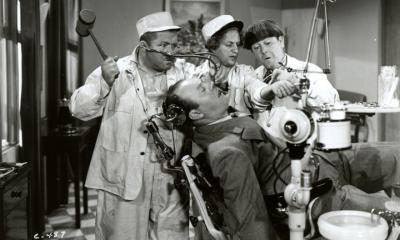Finding a new dentist

Finding the right dentist can seem like an overwhelming task. It can be as difficult as, or even more difficult than, finding a good doctor. It can be especially difficult for those who believe that they have a fear of dentistry
Today, there is no need for fear. Modern dentistry can be and should be not only almost pain free but also free of the yuckiness that is perceived to be associated with it.
It is important that you visit a dentist on an ongoing basis to ensure continuity of care
The first step is to find a dental practice which inspires trust in you. It is important that you visit a dentist on an ongoing basis to ensure continuity of care. Ongoing visits allow conditions such as tooth decay and gum disease to be spotted earlier when treatment is simple and inexpensive. Crucially, regular screening increases the chances of earlier spotting of dreadful lesions like malignancies when treatment has much better chances of success.
Try and finds a dentist before an emergency so that your decision is not made in a hurry. A general dentist will help you with all routine dental care and (if needed) will make referrals to specialists. Word of mouth is the best way to find a new dentist. So, consider asking friends, family, neighbours or co-workers to recommend dentists with whom they have experience and have been pleased with their treatment.
Here are some tips which you may find useful.
Your initial consultation
Use your first visit to observer the standards in the dental practice and don’t be afraid to ask as many questions as needed to make you feel safe and confident. Satisfy yourself that the general appearance of the reception/ waiting area, including the rest room, is to an acceptable standard of cleanliness and the dentist(s) and staff are neat and clean.
As part of your first visit, in addition to questions about your dental history, you should be asked about:
- Your general health and medical history;
- Whether you have suffered from serious illnesses in the past;
- Whether you suffer from a chronic medical condition;
- Details of any medication that you have been prescribed;
- Your smoking history;
- Your previous surgery and general anaesthetics history.
Be satisfied with the standards of hygiene in the surgery
There are comprehensive guidelines on infection control within dental surgeries that ALL registered dentists must obey. You should satisfy yourself that:
- The dentist uses an autoclave (a medical steriliser) to sterilise instruments;
- Gloves are worn by the dentist and his chair side staff at all times when you are under active treatment;
- New gloves are worn for each patient and that these are changed on their return if the treating staff leave the treatment area for any reason, such as taking a telephone call;
- Hand-pieces (drills) are sterilised;
- New injection needles are used for each patient;
- Sterilised single-use cooling solutions / water is used for surgical procedures;
- Staff wash their hands between patients;
- All surgery working surfaces are clean, with disposable covers used on surfaces touched during treatment
Your treatment plan and options
When discussing your proposed treatment with your dentist you should ask:
- What are your treatment options, what other choices do you have for some or all of the treatment suggested and how much will each option cost?
- What are the rates of success and / or complications associated with each of the options offered or suggested?
- Whether the dentist has references or testimonials from previous patients who have received this or similar treatment(s) including before and after photographs of treatment previously provided by that dentist?
- What happens if treatment is unsuccessful or you are unhappy with the result? If there are complications and further treatment is needed, is this an additional cost and who pays?
- Who do you contact for advice after treatment?
- Is there a complaints procedure in the practice and can you see it.
- Does the dentist have professional indemnity insurance cover?
- Does the dentist provide appropriate information in writing regarding aftercare?
The cost of your treatment
Before treatment is commenced you must know the cost (or best estimate) of the treatment and the way payment is to be made. Feel free to discuss this with your dentist before treatment. All dentists should be happy to discuss this with you, especially if you have any concerns in this regard.
Take time to be satisfied with your decision
Time spent making the correct decision about your choice of dentist will contribute to building a trusting patient-dentist relationship which is established on mutual respect. This will maximise your peace-of-mind, minimise any potential for conflict and help in building a long-lasting partnership to protect your oral health.
If you’re looking for a new Dentist… If you don’t have a Dentist… or you’d simply like a 2nd opinion on your overall dental health, then you can call Stanhope Place Dental Practice to schedule a consultation. We will listen to your concerns and goals and through shared decision making will work out what solutions suits you the best.
